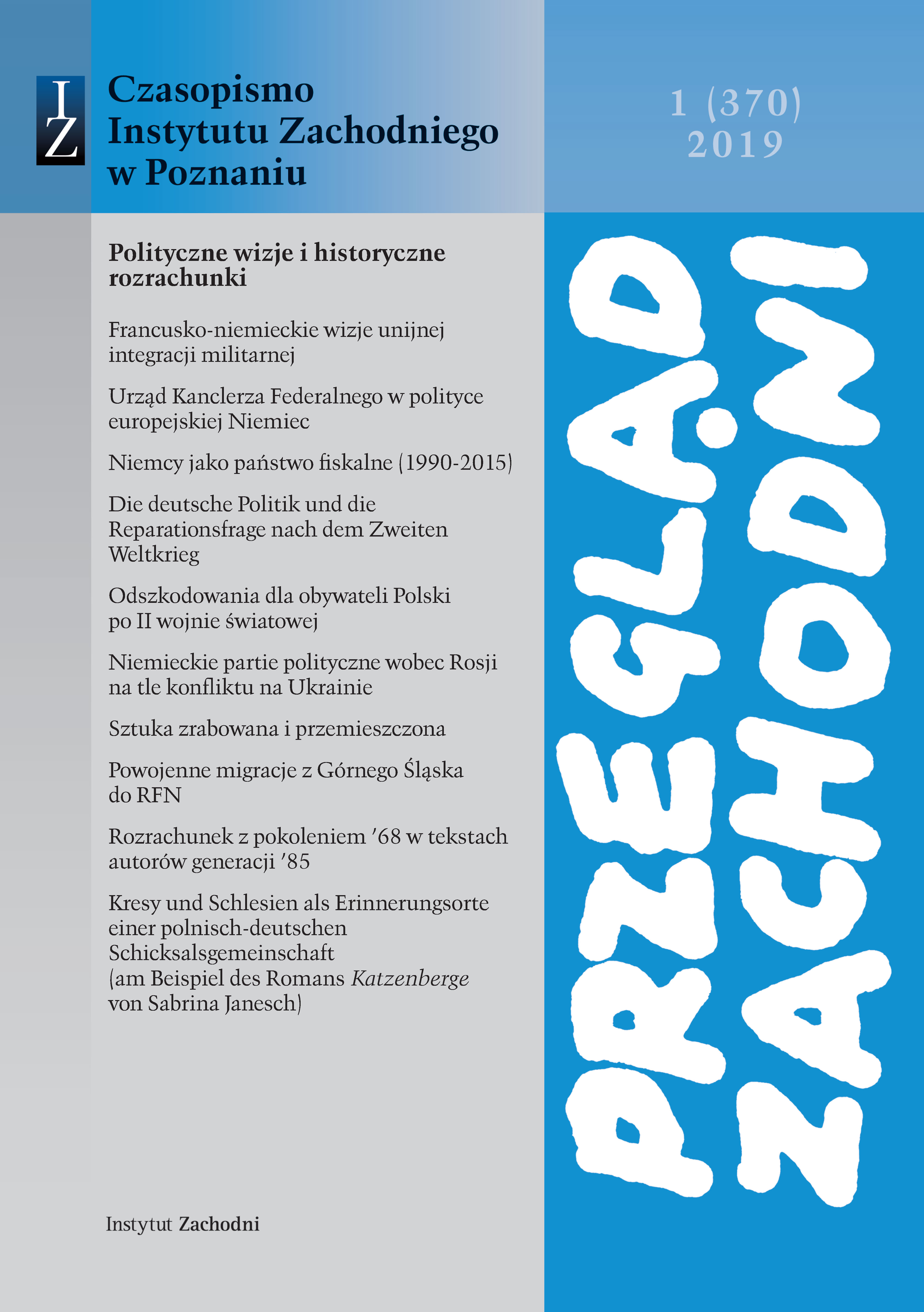Niemieckie partie polityczne wobec Rosji na tle konfliktu na Ukrainie w latach 2014-2018
German political parties towards Russia against the backdrop of the conflict in Ukraine in the years 2014-2018
Author(s): Michał M. KosmanSubject(s): International relations/trade
Published by: Instytut Zachodni im. Zygmunta Wojciechowskiego
Keywords: Germany; Russia; Ukraine; European Union; Crimea; conflict over Crimea; Donbass; sanctions; German political parties
Summary/Abstract: Germany has shown in its history great interest in Central and Eastern Europe. This approach did not change after the reunification in 1990. The Eastern policy of Germany focused on such activities as strengthening political and economic cooperation with the countries of Central and Eastern Europe and supporting their aspirations for membership in the European Union and NATO; wide-ranging cooperation with Russia; supporting Russia’s involvement in cooperation with organizations from the Western world; financial support for economic transformation in Russia. From the perspective of Germany, Russia was perceived as one of the most important partners in the process of strengthening international security. In turn, the Orange Revolution of 2004 drew Germany’s greater attention to Ukraine. The conflict in Crimea and Eastern Ukraine, initiated in 2014, became the cause of deep concern in Germany. The article aims to discuss Germany’s attitude to the Russian-Ukrainian conflict in 2014-2018 - the position of the German government and the main political parties. The author mainly refers to official documents as well as statements of politicians, mostly taken from the press and websites of German political parties. The research problem raised in the article is the attitude of German political parties to Russia following the annexation of Crimea and support of separatist activities in the East of Ukraine. The author verified two research hypotheses: – Traditional political parties, rooted for several decades in the party system of West Germany, show a high degree of principled attitude to the observance of international law. The consequence of such an approach is a critical position at the official level on Russia’s actions in Ukraine. This does not interfere with the phenomenon of pluralism of views on this issue within particular parties. – The political circles of the Eastern federal states, irrespective of the party colors, due to the economic interest tend to lean towards a more flexible approach to Russia’s policy, including limiting or abolishing the sanctions regime. In implementing the goals of the article, the author used appropriate research methods. He decided to resort primarily to elements of institutional and legal analysis, which was used in the examination of documents. In addition, he applied the comparative method, indispensable for comparing the attitude of German political parties to the title problem.
Journal: Przegląd Zachodni
- Issue Year: 370/2019
- Issue No: 01
- Page Range: 105-122
- Page Count: 18
- Language: English, Polish

